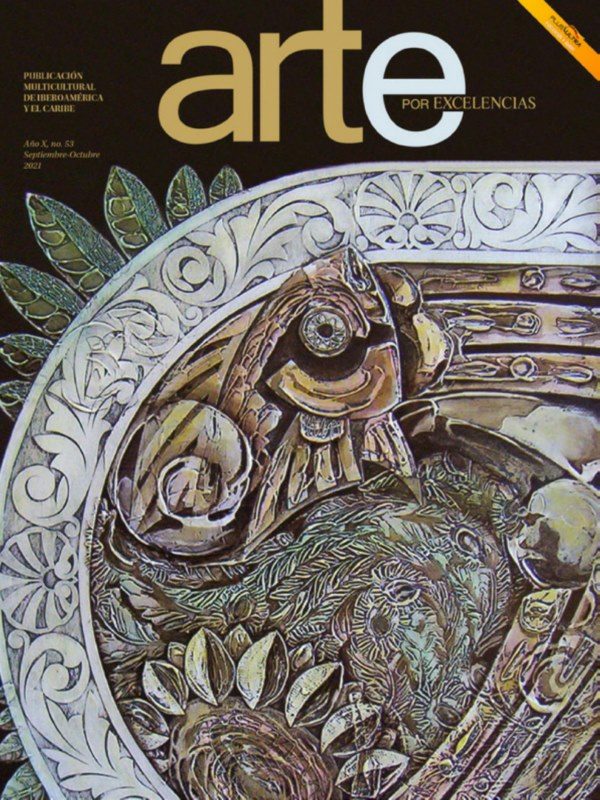By JON PARELES
The singer Betsayda Machado was born in El Clavo, a village in central Venezuela that has maintained an Afro-Venezuelan Christmastime tradition called parranda: call-and-response songs driven by a flurry of percussion in brisk six-against-four rhythms. Her village group, Betsayda Machado y la Parranda el Clavo, has been together 30 years. Its New York City debut was a pure joy at Globalfest, the annual world-music showcase that brought a dozen groups to Webster Hall on Sunday.
With Ms. Machado’s forthright voice answered by her group’s close harmonies and carried by all sorts of percussion — drums large and small, scrapers, shakers, castanets — the group performed songs about saints, dancing, slavery and the hard lives of the cocoa-plantation workers who originally sang parranda. The costumes were brightly patterned; dancers had light, quick steps that barely seemed to touch the stage.
This was the kind of group that world-music fans have always been thrilled to discover: vital, accomplished, local, unplugged, deeply rooted. But Ms. Machado’s group is also using 21st-century tools. It has done DNA testing to trace the musicians’ specific African ancestry; an Indiegogo campaign financed its American tour, and a documentary crew captured the scene.
Each group at Globalfest, which doubles as a showcase for concert promoters during the annual Association of Performing Arts Presenters conference, was navigating between preservation and adaptation, as well as between home and away. And this year, nearly all of them did it with a dance beat — not with the globe-flattening four-on-the-floor of electronic dance music, but with cultural keepsakes from particular places.
Hoba Hoba Spirit, from Morocco, looked like a rock band, clowning onstage and wearing sunglasses and camo. It could sound like one, too, playing hard-rock riffs or churning ahead like the Clash; its lyrics are wry, hardheaded bulletins from Morocco’s urban youth. But in other songs, a band member picked up krakebs — large iron castanets — and the beat turned to the triplets of traditional Gnawa music, returning to North Africa.
Ssing Ssing, from Korea, drew its songs and vocal style from Korean folk tradition, but transmogrified them by way of glam-rock, disco and psychedelia: an irreverent but intriguing hybrid. Maarja Nuut, a singer and violinist from Estonia, used loops and electronics to build austere, Minimalist grids, with traditional-sounding waltzes and polkas floating in them like ghostly memories.
The alto saxophonist Rudresh Mahanthappa led his Indo-Pak Coalition — a trio with Rez Abbasi on guitar and Dan Weiss switching between trap drums and tabla — in pieces that traveled from crisp, tricky, zig-zagging melodies in South Asian modes to the vocabulary of jazz, and back.
Alsarah and the Nubatones are led by Alsarah, a singer and songwriter born in Khartoum, Sudan; she described her music as “Sudanese and Nubian-inspired East African retro pop.” She learned one song, she said, from girls at a refugee camp in South Sudan who had written it. In contemplative ballads or springy, danceable tunes, her music was transparent: an electric oud shared her melodies, a hand drum supplied the beat, and virtually the only harmonies came from a backup singer.
Batida, a producer and D.J. born in Angola and raised in Portugal, put an intellectual overlay on his dance party of a set. He brought along a drummer, a singer and a dancer whose lithe moves sometimes hinted at capoeira. He gave a running commentary on the structure of his set; he showed film clips with surrealist poetry and pointed messages about rich and poor; he held up a larger-than-life photograph of Angola’s president since 1979, José Eduardo dos Santos, and quoted him sarcastically. Meanwhile, his music fused Angolan pop with modern electronics, breezy and upbeat. For his finale, the audience got carnival whistles to tootle atop a carnival beat, but not before Batida noted that Brazil’s carnival traditions were brought, in part, by Angolan slaves.
Jojo Abot, who was born in Ghana and now lives in New York City, appeared in a lavender wig with silver face paint; her songs brought hints of Ghana to futuristic, slow-motion R&B. Ranky Tanky, from Charleston, S.C., sang old Gullah songs — some of them sly moral lessons — in arrangements that connected their beat to a New Orleans lilt.
Three bands had been around long enough to be traditions of their own. Rare Essence was part of the original wave of go-go bands that emerged in Washington in the 1970s, stringing together songs, chants and percussion workouts around the unhurried but steadily propulsive go-go beat. Forty years on, it was a flashback to a funky alternate path for the early days of hip-hop, one that depends on human players rather than programming.
L’Orchestre Afrisa International reunited Congolese musicians who forged the suavely irresistible syncopations of soukous — an African reclamation of the rumba topped by gleaming guitar lines — as the backup band for Tabu Ley Rochereau, who died in 2013. It played songs from its old repertory with Rochereau and his onetime wife, M’bilia Bel; Blandine, a Congolese singer now based in Toronto, gave Ms. Bel’s material grace with a steely core.
And from Cuba, Globalfest brought Septeto Santiaguero, which was formed in 1995 to revive 1940s- and 1950s-style Cuban pop with a slight twist: adding a conga drummer to make it an eight-man septet. Driven by conga and bongos, topped with acoustic guitar and solos plucked on the tres, with trumpet cheekily answering the singers, it was sly, romantic, definitively Cuban and not just for local delight.
Source: www.nytimes.com














